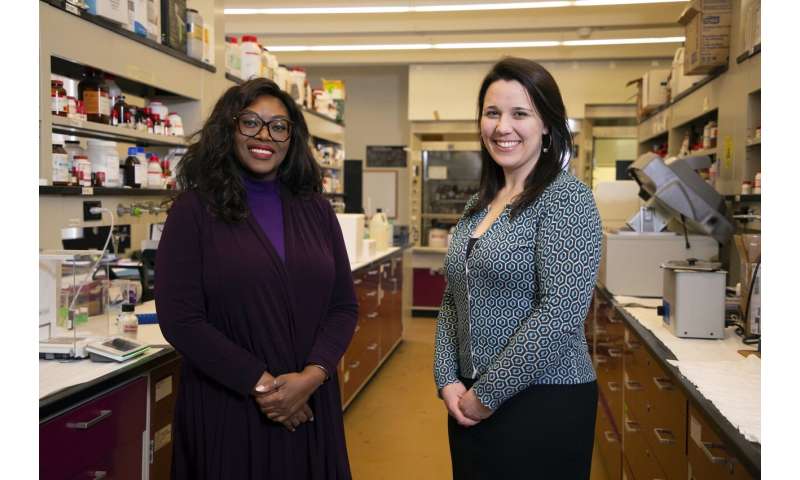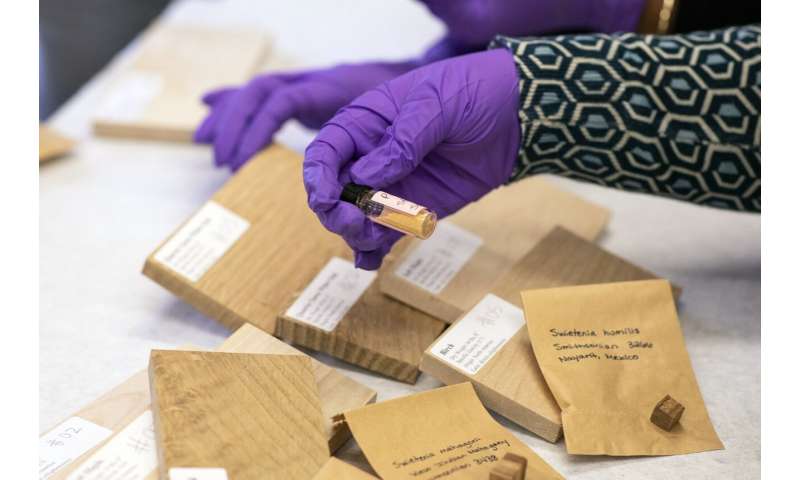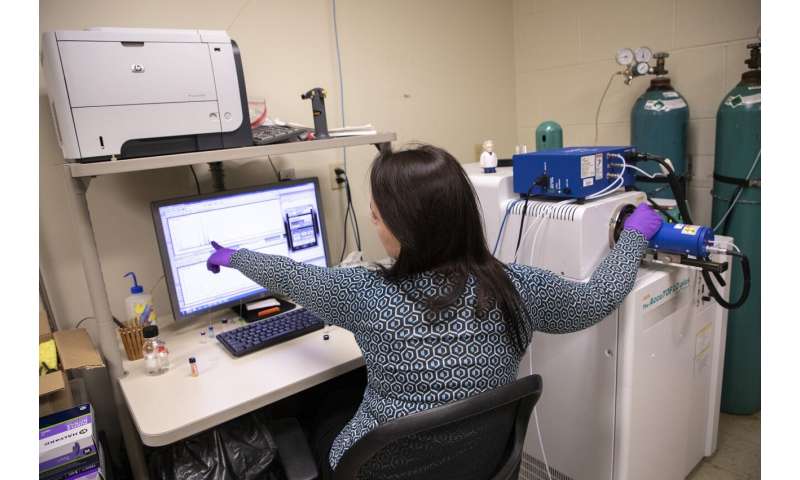UAlbany Chemists Developing New Technique to Help Fight Illegal Logging and Deforestation

The wood processing industry is experiencing historic growth. Recent estimates value its global market at $143 million as of 2022, with the demand for materials that can be used to construct buildings, furniture, flooring and other timber-related items, at record highs.
The lucrative market is also attractive to bad actors. In some tropical countries, illegal logging accounts for the majority of forest clearing, threatening economies, endangered plant and wildlife species, and contributing to climate change.
While it's a widespread problem, differentiating between legal and illegal timber can be near impossible, as most look similar—an issue that Rabi Musah is aiming to address.
Musah, a chemist and professor at the University at Albany, is leading a team of researchers developing a new technique to identify tree species chemically by analyzing a sample of wood. The technique yields a chemical "fingerprint" that is unique to each tree species, allowing authorities to quickly determine whether the harvested wood is from a protected species.
Musah, along with Allix Coon, a UAlbany Ph.D. graduate and current postdoctoral associate, are the co-founders of Sangali, a start-up company focused on developing the technique and bringing it to market.
"Various national and international agencies have instituted restrictions on trade to combat the illegal harvesting of threatened and endangered wood species. However, the success of such interventions hinges on accurate identification, said Musah, who is affiliated with UAlbany's Department of Chemistry and The RNA Institute.

"Sangali aims to fulfill the critical need for accurate, reliable, and rapid species and origin identification of wood, whether in the form of a log or any products fashioned from it."
Stopping Illegal Loggers in Their Tracks
Sangali's method of wood species identification relies on mass spectrometry, an analytical technique used to identify the composition of a sample by measuring the mass-to-charge ratio of its ions.
The approach is comparable to a person's fingerprint being matched against a database. Trees have chemical fingerprint signatures that are species-specific. Through mass spectrometry, coupled with advanced machine learning tools, the Sangali research team is creating a chemical signature database of domestic woods for tree species identification purposes.
The wood samples can be tested in their native form (such as logs, planks, shavings or finished goods) with results available in 15 minutes.
"If a database of plant chemical signatures is created, you will get a positive 'hit' and therefore the identity of the plant sample, as long as its mass spectral profile appears in the database," Coon said. "Using this technique, we are creating a novel chemical signature database that can be used for tree species identification."

Tech to Market
In 2015, around the time Musah began more broadly exploring the chemical signatures of plants, she met Coon, a sophomore in UAlbany's Honors College at that time, majoring in chemistry and minoring in business.
The two began working together in Musah's research lab as mentor and mentee in 2016. After completing the New York I-Corps Hub entrepreneurial training program in 2021, they officially launched Sangali, Inc.
Their start-up recently secured a $275,000 National Science Foundation Small Business Technology Transfer (STTR) Phase I grant. The highly competitive STTR program funds only around 400 companies each year.
"Both of us were interested in the prospect of starting a company and building it from the ground up," Musah said. "Once completing the I-Corps program, where our idea of wood analysis was pitched and received with great enthusiasm, we were convinced that this venture was something that would be of tremendous interest and benefit to the lumber industry."
The STTR funds are currently being used to acquire verified domestic wood species, run the mass spectral analyses and develop a robust database. In addition, they are investigating the technique's ability to identify mixed-species composite materials and determine the geographic origin of wood species. Other ongoing work includes the development and refinement of the machine learning models that support the analysis.
They are also starting to research how to provide the analysis on site, rather than in a lab, through a portable device that rapidly scans the wood product for species identification.
Provided by University at Albany